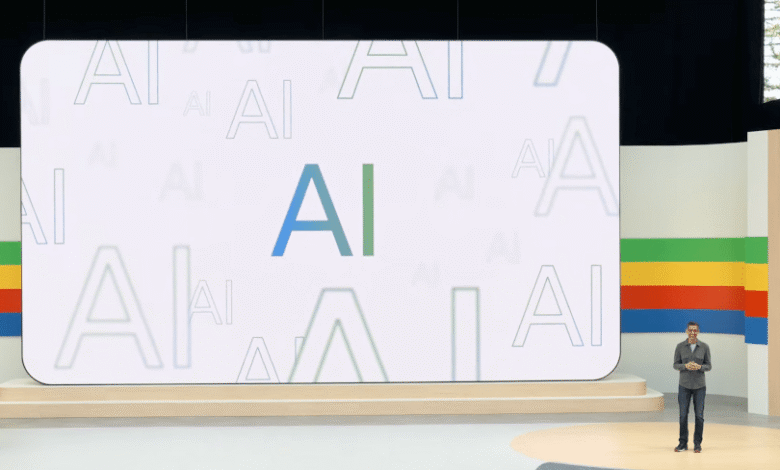Google’s Stitch AI: Design Apps Faster & Smarter

▼ Summary
– Google launched Stitch at I/O 2025, an AI tool that generates UI elements and code for web and mobile apps based on text or image prompts.
– Stitch offers customization options, supports exporting to Figma, and allows fine-tuning of generated designs, but is not a full-fledged design platform like Figma or Adobe XD.
– The tool uses either Gemini 2.5 Pro or Gemini 2.5 Flash models and targets the growing “vibe coding” trend, competing with tools like OpenAI’s Codex and GitHub Copilot.
– Google also expanded access to Jules, an AI agent in public beta that helps developers debug code, manage GitHub pull requests, and upgrade software versions.
– Future updates to Stitch will include a feature enabling UI tweaks via annotated screenshots, while Jules may add support for switching between AI models.
Google’s new Stitch AI tool revolutionizes app design by generating UI elements and code with simple prompts. Unveiled at Google I/O 2025, this innovative platform enables developers to create web and mobile interfaces using either text descriptions or reference images, significantly accelerating the design process.
Powered by Gemini 2.5 Pro or Gemini 2.5 Flash, Stitch produces clean HTML and CSS markup that developers can refine in their preferred IDE. While not a full replacement for professional design tools like Figma or Adobe XD, it excels at rapid prototyping—allowing users to export designs directly to Figma and fine-tune generated elements.
The tool arrives as AI-assisted coding gains momentum, with competitors like OpenAI’s Codex and Microsoft’s GitHub Copilot expanding their capabilities. Though Stitch focuses narrowly on front-end design, its customization options stand out. During a demo, Google showcased a bookworm app interface and a beekeeping dashboard, highlighting how quickly initial concepts can materialize.
“Stitch helps developers jumpstart projects by handling early iterations,” explained Google product manager Kathy Korevec. Soon, an upcoming feature will let users modify designs by annotating screenshots of existing UIs—further streamlining the workflow.
Alongside Stitch, Google introduced Jules, an AI assistant now in public beta that helps debug code, manage GitHub pull requests, and automate technical upgrades. In one demonstration, Jules seamlessly migrated a website from Node.js 16 to Node.js 22, verifying functionality post-update. Currently running on Gemini 2.5 Pro, Jules will eventually support model switching for greater flexibility.
By combining Stitch’s design automation with Jules’ coding assistance, Google is positioning itself as a key player in AI-powered development tools—bridging the gap between concept and execution for modern app builders.
(Source: TechCrunch)





